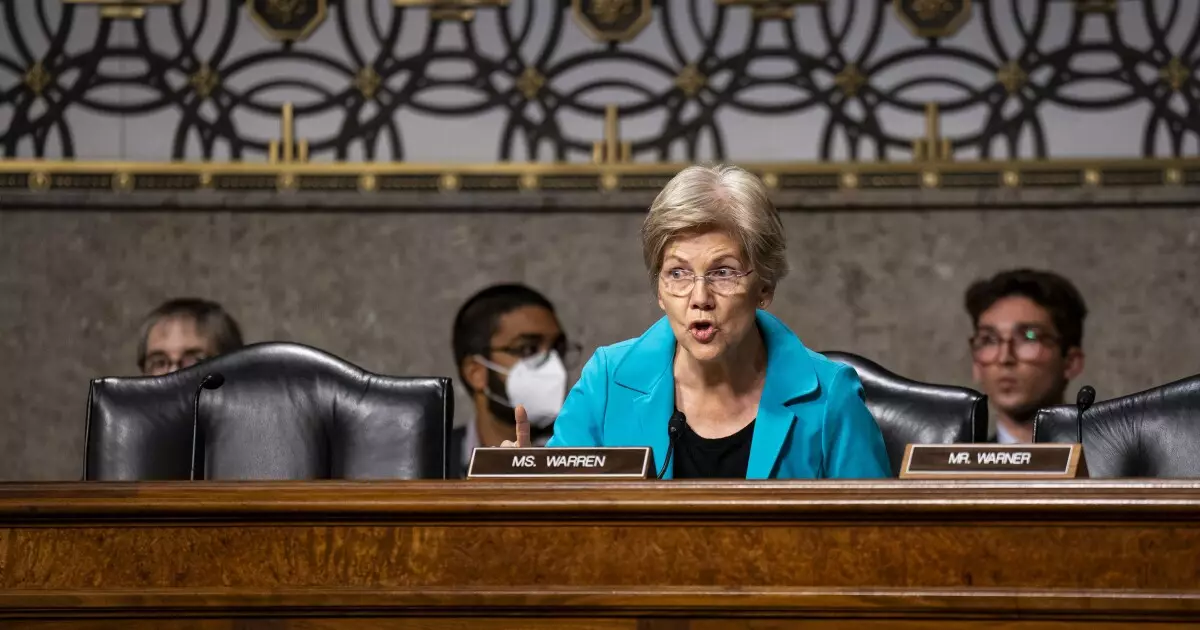The Tax Debate Reignites: Elizabeth Warren’s Call for Equity Over Billionaire Handouts

As the American political landscape braces itself for a new Congress, the discussion surrounding tax policy has surged to the forefront, particularly as it pertains to the legacy of the 2017 Tax Cuts and Jobs Act (TCJA). In a recent subcommittee hearing of the Senate Banking, Housing, and Urban Affairs, Sen. Elizabeth Warren of Massachusetts articulated a vehement critique of the TCJA, coining it a “scam of giant proportions.” This powerful framing sets the stage for a critical examination of the implications of the tax policy as Democrats prepare for potential battles ahead, notably with the incoming Republican Majority.
Warren’s fiery commentary isn’t merely a critique of past legislation; it is a warning about a potential sequel that Republicans might pursue to extend or make permanent the significant tax cuts initially instituted by Trump. With estimates suggesting that prolonging such measures could add another $4.5 trillion to the federal deficit from 2025 to 2034, Warren paints a stark picture of economic ramifications, particularly for the middle class. She argues that American taxpayers—especially those who are hard-working yet struggling—would ultimately bear the weight of these tax cuts via inadequate public services and dwindling resources.
The concerns are compounded by the stated intentions of Republican leaders to act swiftly in January, which signals a possible rush to implement these policies. This aggressive timeline adds urgency to Warren’s call for transparency and accountability in the upcoming debates, underlying her narrative that will test the spirit of fairness and equity in taxation under the new congressional configuration.
Warren’s characterization of the TCJA as a misstep lays the groundwork for broader implications related to income redistribution and economic equality. The critiques center on the notion that significant benefits flowed to America’s wealthiest citizens and corporations, arguing that the legislation entrenched an inequitable tax system that favors billionaire donors while neglecting hardworking Americans. The Democratic stalwart challenges her colleagues in the Senate to choose their path: will they uphold further giveaways to the affluent or fight for tax reform that addresses financial disparities?
During the hearing, the question of fiscal responsibility emerged, particularly regarding how to fund these potential tax cuts. Warren characterizes the Republican plan as one that complicates the budgetary landscape through proposals that might shift the burden onto less affluent taxpayers. The political discourse has shifted to whether tax cuts should be seen as extending existing policies or as new legislation—a pivotal distinction that could influence legislative outcomes.
Adding nuance to the conversation, the hearing brought attention to the issues surrounding the state and local tax (SALT) deduction cap. Newly-elected Senator George Helmy highlighted the detrimental impacts of the existing cap, which serves as a reminder of how various tax policies can disproportionately affect certain demographics, particularly those residing in higher-tax states. The contention over SALT illustrates the complex interplay between local and federal tax policies, whereby adjustments made to curb revenue can lead to unforeseen hardships for specific communities.
This dynamic raises critical questions about equity in taxation and who ultimately benefits or suffers from legislative changes. As Congress gears up for this pivotal debate, it is worth questioning whether policymakers can find common ground or if contrasting ideologies will further entrench divisions.
The forthcoming tax policy discussions in Congress are poised to be contentious, fueled by the differing priorities of Democrats and Republicans. With Elizabeth Warren leading the charge, the spotlight will be on the notions of tax fairness and accountability. The debate over extending the TCJA highlights not just a financial issue, but a moral one, probing how government priorities reflect the value placed on the contributions of all citizens.
As this narrative unfolds, patience and scrutiny will be required from the electorate. The unfolding discussions should not just focus on the figures—such as potential deficits and estimated costs—but also on the broader implications for American society. In an era where economic divides have widened, the question remains: can Congress redirect its focus toward an equitable approach that champions all constituents rather than a select few? The answer lies in the deliberations that follow, as leaders navigate the treacherous waters of fiscal policy, presenting a defining moment for the future of economic justice in America.





